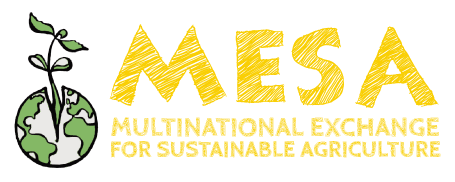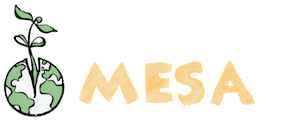<- Return to Listings | Copy | |
Host Training Plan
| Name | Dakota Lakes Research Farm Corp. | [email protected] | |
| Steward(s) Selected | Akolbila – | ||
| Training Start Date | 10/01/2018 | Training End Date | 11/21/2018 |
| Steward Training Hours per Week | 25 to 40 | ||
| Compensation (Stipend or Wage) | Yes | If Yes, how much/how often? | [1156] |
| Non-Monetary Compensation and Estimated Value | $2,500 |
| Name of your Workers’ Compensation Carrier | None |
| Will your Workers’ Compensation policy cover the Steward? | No, exempt |
| Number of Employees at training location | 5 |
| Number of Interns/Trainees/Apprentices at training location | None during this time period |
| Annual Revenue | $0 to $3 Million |
[Phase 1]
| Phase Name | Beginning | ||
| Start Date of Phase | 10/01/2018 | End Date of Phase | 10/26/2018 |
| Primary Supervisor during this phase | Dr. Dwayne Beck | Supervisor Title | Manager DLRF |
| [email protected] | Phone Number | 605-224-6114 | |
| 1. Describe the Trainee/Steward’s role for this phase |
|
The first two weeks will be used to introduce the concepts of mechanized no-till farming in dry areas and under irrigation. There will be both seeding and harvesting taking place at DLRF in this time period. Emphasis will be place on the principles of setting and operating seeders, harvesters, and transport equipment properly and safely. |
| 2. Specific goals and objectives for this phase |
|
Learning proper safety and maintenance procedures is a primary goal. |
| 3. Primary Supervisor’s qualifications |
|
Over 40 years of mechanized no-till experience |
| 4. What plans are in place for the Trainee/Steward to participate in cultural activities while in the United States? |
|
Dakota Lakes is situated between several Native American communities. Pierre is home to the State Cultural Heritage Center. It is also the capitol of South Dakota |
| 5. Specific knowledge, skills, or techniques to be learned during this phase? |
|
Setting drills to achieve proper seed and fertilize placement. Reasons for using this technique. Setting a combine harvester for corn, sorghum, and soybeans. Assessing field losses. Maintaining these machines. |
| 6. How specifically will this knowledge, skills, or techniques be taught? Include methodology of training and chronology/syllabus. |
|
The teaching will observation in the initial phase. Then the trainee will be tasked with performing these tasks under direct supervision. |
| 7. How will the Trainee/Steward’s acquisition of new skills and competencies be measured? |
|
The trainee will be evaluated in the ability to perform these tasks. |
| 8. Additional Phase Remarks (optional) |
|
Emphasis will be placed on safety . This was lacking in Ghana when we visited. |
[Phase 2]
| Phase Name | Management and information | ||
| Start Date of Phase | 10/26/2018 | End Date of Phase | 11/29/2018 |
| Primary Supervisor during this phase | Dr. Dwayne Beck | Supervisor Title | Manager DLRF |
| [email protected] | Phone Number | 605-224-6114 | |
| 1. Describe the Trainee/Steward’s role for this phase |
|
The trainee will participate in management tasks like soil sampling, data analysis, and information gathering |
| 2. Specific goals and objectives for this phase |
|
Learn proper soil sampling techniques, sample preparation, sample submission, and analysis of results. Analyze crop yield results for yield and quality. Determine desired varieties to be used the next year. Ascertain equipment repairs to be made. Attend conferences to lean new methods that may have potential. |
| 3. Primary Supervisor’s qualifications |
|
Over 40 years of farm management experience. |
| 4. What plans are in place for the Trainee/Steward to participate in cultural activities while in the United States? |
|
Several conferences will be attended. These reflect a wide range of individuals and many parts of the agricultural community in the US. There will also be national and local elections taking place Being in the capital makes that interesting. |
| 5. Specific knowledge, skills, or techniques to be learned during this phase? |
|
Proper soil sampling, sample preparation, submission, and analysis selection. Making fertilizer and seed decision. Determining maintenance needs of field equipment. |
| 6. How specifically will this knowledge, skills, or techniques be taught? Include methodology of training and chronology/syllabus. |
|
Observing and participating in the soil sampling and submission process. Observing and participating in the maintenance requirement decisions. Attending conferences, visiting commercial no-till farmers to study their procedures. Visit SDSU and Ward Laboratories to observe what happens to submitted samples. Attending two no-till conferences. Receive training in machinery maintenance from a local dealership |
| 7. How will the Trainee/Steward’s acquisition of new skills and competencies be measured? |
|
His ability to perform these tasks will be assessed by the Manager and the staff members that have expertise in these areas. |
| 8. Additional Phase Remarks (optional) |
|
The weather in November begins to cool. This means activities focus more on those done indoors. |
[Phase 3]
| Phase Name | |||
| Start Date of Phase | 11/29/2018 | End Date of Phase | |
| Primary Supervisor during this phase | Supervisor Title | ||
| Phone Number | |||
| 1. Describe the Trainee/Steward’s role for this phase |
| 2. Specific goals and objectives for this phase |
| 3. Primary Supervisor’s qualifications |
| 4. What plans are in place for the Trainee/Steward to participate in cultural activities while in the United States? |
| 5. Specific knowledge, skills, or techniques to be learned during this phase? |
| 6. How specifically will this knowledge, skills, or techniques be taught? Include methodology of training and chronology/syllabus. |
| 7. How will the Trainee/Steward’s acquisition of new skills and competencies be measured? |
| 8. Additional Phase Remarks (optional) |

